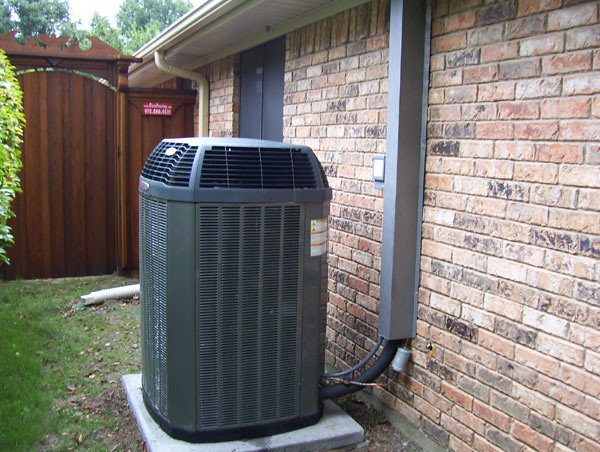When it comes to choosing the right air conditioning system for your home or office, the decision can be overwhelming, especially when comparing two popular brands like Trane and Senville. This comprehensive guide will delve into the technical details, reliability, and other key factors to help you determine which brand is the better choice for your specific needs.
Allegations of Rebranded Mini-Split Units
One of the first points to consider when comparing Trane and Senville is the allegation that some mini-split units are being sold under different brand names with only minor changes. This raises questions about the true differences between units sold under different labels. While it’s unclear whether this applies to Trane and Senville specifically, it’s an important factor to keep in mind when evaluating the two brands.
To investigate this further, it’s essential to closely examine the technical specifications and construction of the units from both manufacturers. Look for any similarities in components, design, or manufacturing processes that could indicate rebranding. Additionally, research customer reviews and industry reports to see if there are any indications of shared origins or OEM relationships between the two brands.
Reliability and Durability Considerations
 Image source: Flickr by Jackie Bese
Image source: Flickr by Jackie Bese
When it comes to reliability and durability, both Trane and Senville have received mixed reviews from users. Some customers have reported issues with both brands, while others have praised their units for their long-lasting performance and dependability. It’s important to note that the reliability of an air conditioning unit can depend on various factors, including the specific model, installation, and maintenance practices.
To assess the reliability of Trane and Senville units, consider the following:
-
Compressor Quality: The compressor is the heart of an air conditioning system, and its quality can significantly impact the unit’s lifespan and performance. Research the compressor models used in Trane and Senville units, and look for information on their reputation for reliability and longevity.
-
Coil Design and Materials: The coils, both indoor and outdoor, play a crucial role in heat transfer and overall system efficiency. Examine the coil designs and materials used by Trane and Senville to understand their potential impact on long-term durability.
-
Warranty Coverage: Compare the warranty terms and coverage offered by Trane and Senville, as this can provide insight into the manufacturers’ confidence in their products’ reliability.
-
Installation and Maintenance Requirements: Proper installation and regular maintenance are essential for the optimal performance and longevity of any air conditioning system. Investigate the specific requirements and recommendations for Trane and Senville units to ensure they align with your capabilities and resources.
Technical Specifications and Efficiency Ratings
When it comes to technical specifications, Trane and Senville offer a range of units with varying SEER (Seasonal Energy Efficiency Ratio) ratings, BTU capacities, and other features. SEER is a measure of an air conditioner’s efficiency, with higher ratings indicating more efficient units.
Trane offers units with SEER ratings ranging from 14.5 to 22, while Senville offers units with SEER ratings ranging from 15 to 25.5. However, it’s important to note that a higher SEER rating does not necessarily mean that one brand is better than the other, as other factors such as cost, noise level, and features may also be important considerations.
To compare the technical specifications of Trane and Senville units, consider the following:
-
SEER Ratings: Examine the SEER ratings of comparable models from both brands to understand their relative energy efficiency. Keep in mind that higher SEER ratings may come with a higher price tag.
-
Cooling and Heating Capacities: Determine the BTU (British Thermal Unit) capacities of the units to ensure they match the cooling and heating requirements of your space.
-
Inverter Technology: Investigate whether Trane and Senville units utilize inverter technology, which can provide improved efficiency, better temperature control, and quieter operation.
-
Noise Levels: Compare the noise levels of Trane and Senville units, as this can be an important factor, especially for indoor installations.
-
Additional Features: Look for features like Wi-Fi connectivity, smart home integration, and advanced air filtration systems, which may be important considerations for your specific needs.
Cost and Installation Considerations
In addition to technical specifications and reliability, the cost and installation requirements of Trane and Senville units are also crucial factors to consider. Investigate the following:
-
Unit Prices: Compare the upfront costs of Trane and Senville units, taking into account any differences in features, efficiency, and warranty coverage.
-
Installation Complexity: Assess the complexity of installing Trane and Senville units, as this can impact the overall cost and the need for professional installation.
-
Availability and Lead Times: Evaluate the availability of Trane and Senville units in your local market, as well as any potential lead times for delivery and installation.
-
Ongoing Maintenance Costs: Consider the long-term maintenance requirements and associated costs for Trane and Senville units, as this can impact the total cost of ownership.
Conclusion
In conclusion, while there are some differences between Trane and Senville in terms of reliability, technical specifications, and other factors, it’s difficult to definitively say whether one brand is better than the other. The best choice will depend on your specific needs, preferences, and the overall value proposition of each brand. By carefully considering the factors outlined in this guide, you can make an informed decision that aligns with your budget, installation requirements, and long-term performance expectations.
